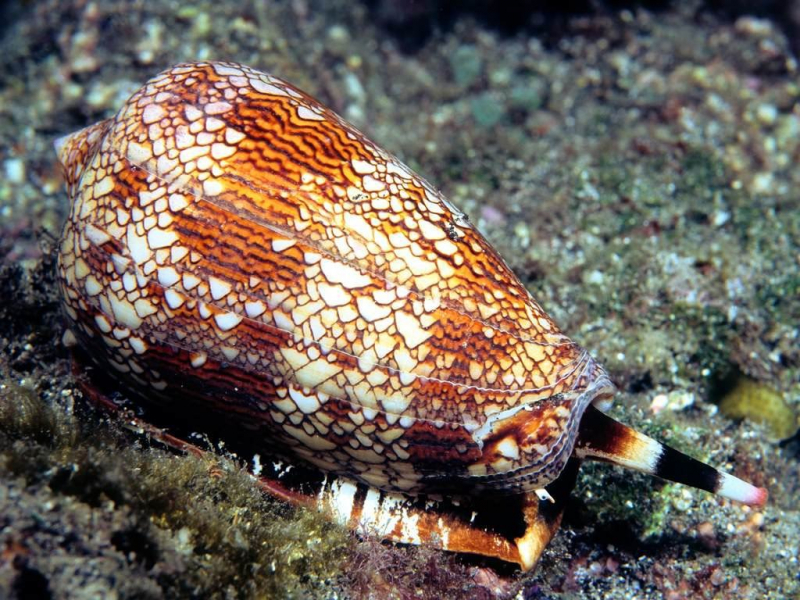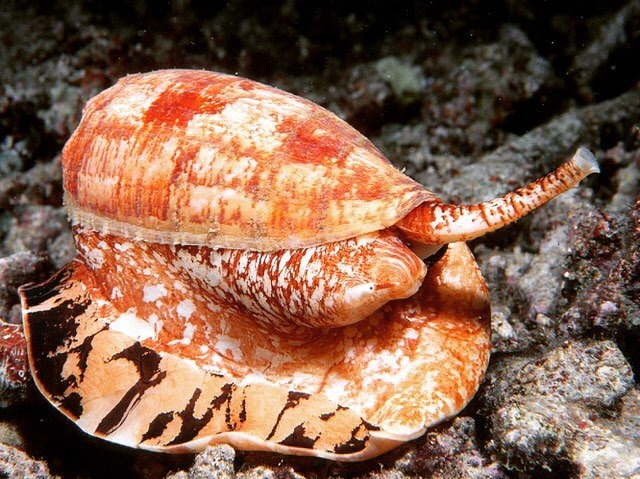Cone snail
Cone snails are a type of marine snail that is particularly poisonous. There are more than 600 species on the planet. Shallow reefs are home to cone snails. They are often partially buried under sandy sediment, rocks, or coral in tropical and subtropical waters. Despite their unassuming look, they are capable of stinging humans and should never be handled. Their shells are generally brightly colored and have intricate designs, which is a terrible human attraction and a predator deterrent.
Snails sting by extending a long flexible tube known as a proboscis and then launching a venomous, harpoon-like tooth. Their venom is extremely harmful to humans and can be lethal. A drop of cone snails' venom can kill up to 20 people. A cone snail sting can cause mild to moderate discomfort, as well as redness and swelling. Its conus toxins have an effect on the nervous system and can cause paralysis, which can lead to respiratory failure and death. Surprisingly, the same venom has been examined for possible medical use.












